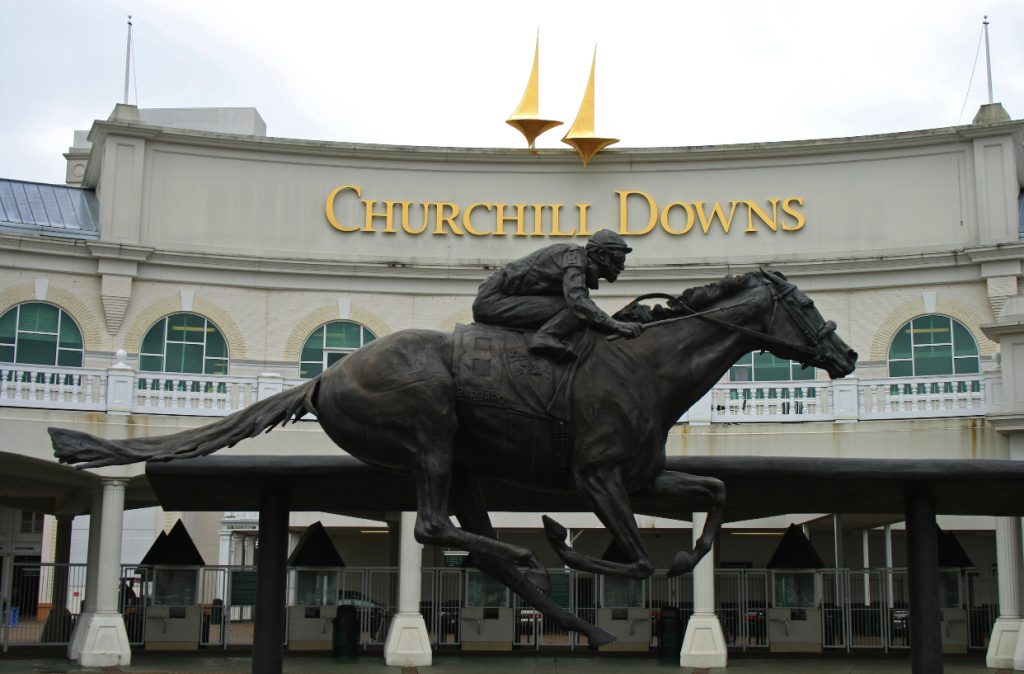
Can Racetrack Financials Tell Us Anything at All?
A decade ago, the three largest US racetrack companies – Churchill Downs, Inc., the New York Racing Association and Frank Stronach’s Magna Entertainment – all issued financial reports that made at least some of their operations transparent. Then, in 2011, Stronach took his racetrack business private, which meant that it no longer released public financial reports. And in 2016, NYRA, which had been operating as a quasi-governmental limited-profit entity, decided it was no longer subject to New York State’s Freedom of Information Law and stopped making its financials public. And now, with its 2019 annual financial report and first-quarter 2020 results, just released this week, Churchill has so thoroughly muddied its presentation of data that you can no longer make any meaningful statements about how its individual racetracks are doing.
There are probably good reasons to hide or at least muddy the information. Owning a race track is not exactly a big money maker these days. Most tracks are living on slot-machine welfare; the tracks’ share of betting handle (“takeout”) covers less and less of the ever-growing amount needed for purses and for keeping the doors open. And betting handle itself has declined steeply in real, inflation-adjusted dollars. So, for most tracks, it’s probably true that no financial news – at least to the public – is good news.
Now, back to that Churchill Downs Inc. financial report for 2019. For more than a decade, Churchill has steadily become less a racing company and more a “gaming” entity, deriving ever more revenue from slot machines at its tracks and from stand-alone casinos. It also created Twin Spires, the largest US online horse-race betting operation, accounting for about 15% of total US handle. So, for some years actual live horse races – apart from the two days a year of the Kentucky Oaks and Derby – have been, if anything, a minor annoyance for the corporate types at CDI headquarters in Louisville, along the lines of “well, I guess we have to run these damn races to keep our casino licenses.”
With its 2019 Annual Report and SEC Form 10-K filing, Churchill Downs Inc. completed its transition away from being a horse racing business. Instead of the financial reporting by individual tracks that had been included in earlier reports, CDI has now divided its business into four broad segments, with horse racing unevenly distributed among them: (1) Churchill Downs itself and the Derby City slots emporium in Louisville; (2) “Online Wagering,” primarily the Twin Spires ADW operation, plus a nascent sports-betting business; (3) “Gaming,” which is a mash-up of some straight casinos plus the Presque Isle and Fair Grounds tracks-cum-casinos; and (4) “All Other,” which includes Arlington Park and Turfway, CDI’s two tracks without attached casinos, as well as the new track in Oak Grove, Tennessee, and CDI’s United Tote business. So, four business segments, with race tracks scattered across three of them. I guess it makes sense to the corporate execs, but it’s damn hard to look at the financials and say very much about how the racetrack business is doing.
At the corporate level, CDI is doing just fine, or at least it was before the coronavirus postponed this year’s Derby and Oaks, delayed the start of Churchill’s spring meet and shuttered all the company’s casinos. The company’s share price, which reached a high of $168 last year before closing out the year at $137, has fallen, like virtually all US stock prices, to a current level of just over $100, but that’s still a huge gain over the past five years; through the end of 2019, in fact, the share price had registered a compound growth rate of 34% a year since 2014, substantially out-performing the broader market.
Underlying that share price was a steady gain in net revenue, to a total of $1.33 billion in 2019, and in net income from continuing operations, to $216 million last year. Not surprisingly, relatively little of that income comes directly from horse racing anymore.
Looking just at net revenue – because the annual report doesn’t show net income (i.e., revenue less expenses) by individual tracks or casinos – the Churchill Downs track accounted for about 15% of the company’s receipts, mostly from Derby-Oaks weekend in May. Twin Spires alone accounted for half again as much – 22% of the company’s total, while the various casino operations including Fair Grounds and Presque Isle and the new Derby City venue in Louisville, pulled in 59% of total corporate revenue. And that “all other” category of Arlington Park, Turfway and United Tote added up to not much more than a footnote, with barely 5% of corporate revenue and a net loss when expenses are factored in.
The coronavirus pandemic, of course, put a temporary hold on CDI’s continued efforts to grow outside racing. With all its casinos closed by mid-March and with the Derby postponed, net earnings for the first quarter were essentially zero, although revenue took only a 5% hit from last year. And CDI drew down some $700 million from a revolving loan facility in the first quarter, giving it enough cash to weather the year, even as it floated plans to allow at least some spectators at the track for the rescheduled Derby-Oaks weekend September 4th and 5th.
So, that weekend aside, Churchill Downs Inc. is, for all intents and purposes, a casino and online betting company. And that probably suits the top executives just fine. It’s not a coincidence that CDI’s metamorphosis from an entity focused on racing – at one point it hosted lengthy meets at Hollywood Park and Calder as well as at Churchill – to one that’s all about casinos and online betting coincides with the arrival of three alumni of famed corporate honcho Jack Welch’s General Electric Company, a fearsome financial giant in past decades. Both Churchill CEO William Carstanjen and Chief Operating Officer William Mudd came to CDI directly from GE, Carstanjen in 2005, the same year CDI sold Hollywood Park, and Chief Financial Officer Marcia Dall started out at GE before spending some years with insurance companies en route to CDI.
None of the three top execs have any particular ties to horse racing, and only Mudd has links to Kentucky. As it turned out, importing three top execs from General Electric probably reflected the CDI Board’s decision to pivot away from racing; if the company were still run by people who actually cared about horse racing, they might not have moved so fast to adapt the company to the new business reality.
Those top executives have done very well personally while shepherding CDI out of its old reliance on racing and into the new world of casino and online gambling. Last year Carstanjen earned $10.6 million in total compensation – an astonishing 447 times the median compensation ($23,670 a year) of a CDI employee – while Mudd and Dall picked up $5.3 million and $2.6 million respectively. The three top execs collectively own more than $100 million in CDI stock. Yes, the folks in the executive suite did a good job – at least for the shareholders, if not necessarily for the horsemen at CDI’s various tracks – but still, 447 times the median salary?
Compared to CDI, The Stronach Group and NYRA must seem to be terribly old-fashioned, actually thinking that horse racing is what they’re about. Perhaps they still make money at the race track, but in the absence of public financial reports, we’ll never know, though NYRA’s last public financial reports, in 2015 and 2016, suggested it was pretty close to break-even. Meanwhile, what is clear is that the Churchill Downs Inc. of today would hardly be recognizable to Col. Matt Winn, the Churchill Downs President who, a century ago, made the Kentucky Derby into the world’s pre-eminent horse race. The Twin Spires may still be on the cover of CDI’s annual report, but, recognizing reality, the company is no longer about racing.


